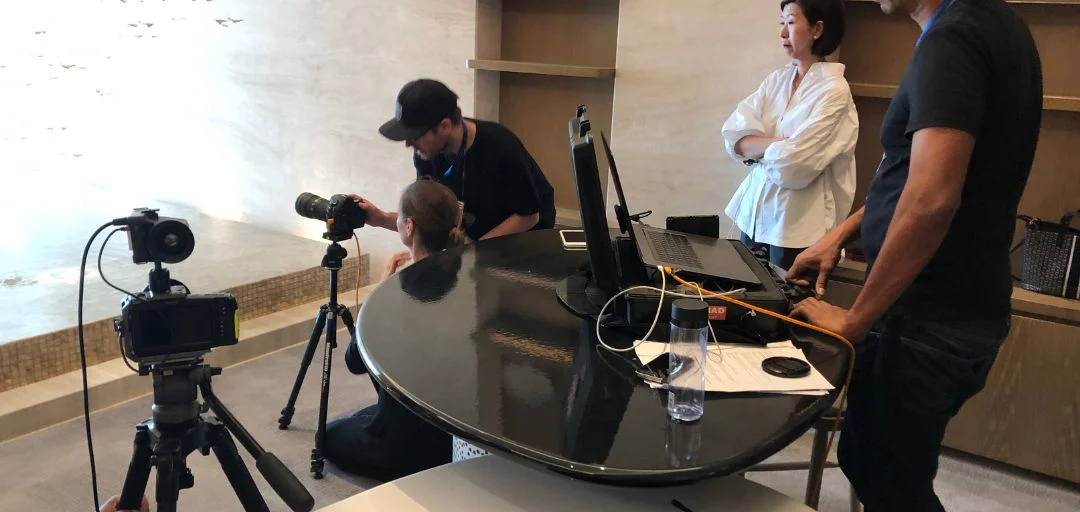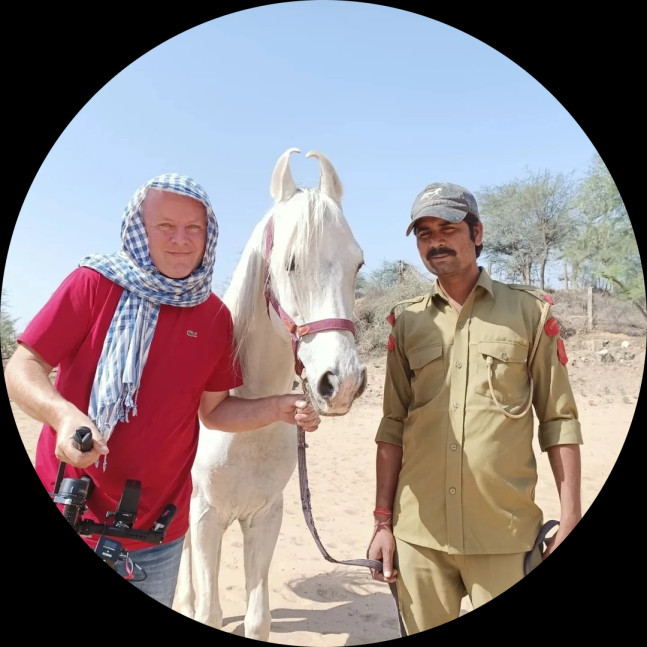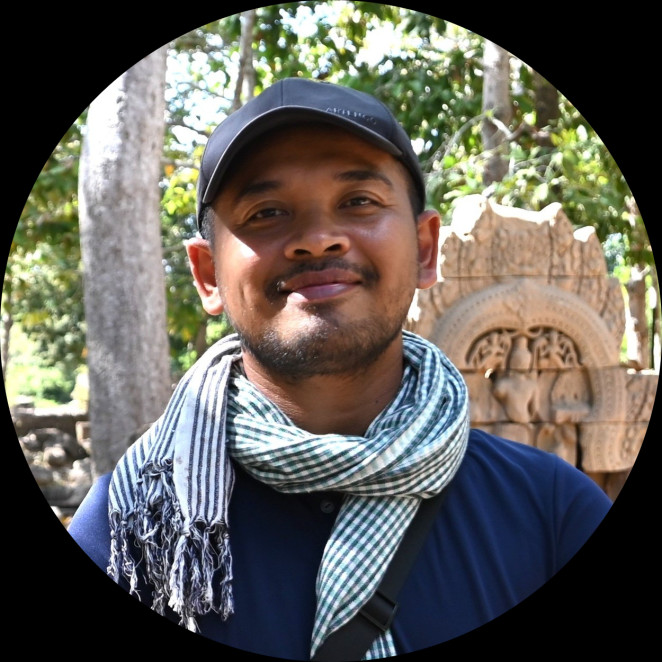

 Filming Facility: Basic
Filming Facility: Basic
Filming in Cambodia : Locations, Studios, Permits, and Expert Production Crews Cambodia
 World Production Service is your trusted production resource for all your photo, video, documentary, TV and film production needs, anywhere in the world. Our comprehensive range of services covers every aspect of production, from conceptualization to post-production, for both factual and branded content, ensuring a seamless experience for our clients. With extensive experience in producing all types of projects, including corporate videos, photography, documentaries, TV shows, and film productions, we are committed to providing top-quality visual content that exceeds your expectations.
With our strong presence in Cambodia and a wide network of professional photo and film crew, we are well-equipped to cater to your production requirements in the region. Whether you require a full-service production or just a fraction of it, we offer end-to-end solutions starting from scratch or support your shoot in Cambodia. Choose World Production Service for a successful production experience, every time.
World Production Service offers a diverse range of production services, including but not limited to: film production service, video production service, photo production service, documentary production service, TV production service, production service, TV commercial production service, branded video production service, and local production support service in Cambodia. Our team of experienced professionals is dedicated to providing exceptional quality and ensuring that your production needs are met with precision and care. No matter what your production requirements may be, you can rely on World Production Service to deliver outstanding results and unparalleled support throughout the entire production process in Cambodia.
World Production Service is your trusted production resource for all your photo, video, documentary, TV and film production needs, anywhere in the world. Our comprehensive range of services covers every aspect of production, from conceptualization to post-production, for both factual and branded content, ensuring a seamless experience for our clients. With extensive experience in producing all types of projects, including corporate videos, photography, documentaries, TV shows, and film productions, we are committed to providing top-quality visual content that exceeds your expectations.
With our strong presence in Cambodia and a wide network of professional photo and film crew, we are well-equipped to cater to your production requirements in the region. Whether you require a full-service production or just a fraction of it, we offer end-to-end solutions starting from scratch or support your shoot in Cambodia. Choose World Production Service for a successful production experience, every time.
World Production Service offers a diverse range of production services, including but not limited to: film production service, video production service, photo production service, documentary production service, TV production service, production service, TV commercial production service, branded video production service, and local production support service in Cambodia. Our team of experienced professionals is dedicated to providing exceptional quality and ensuring that your production needs are met with precision and care. No matter what your production requirements may be, you can rely on World Production Service to deliver outstanding results and unparalleled support throughout the entire production process in Cambodia. Weather in Cambodia
Cambodia has a tropical climate characterized by hot and humid weather throughout the year. The country has two distinct seasons: the wet season and the dry season.
The wet season in Cambodia runs from May to October, with heavy rainfall and occasional flooding. The temperatures during this season are relatively cooler, ranging from 24°C to 32°C. The wet season can make filming challenging as the rain can disrupt outdoor filming and create muddy and difficult conditions for crew and equipment.
The dry season in Cambodia runs from November to April, with little to no rainfall and high temperatures. During this season, the temperatures can range from 26°C to 35°C. The dry season is generally considered the best time to film in Cambodia as the weather is more predictable and stable, and there is plenty of natural light for filming.
Overall, the best filming season in Cambodia is from November to February when the weather is cooler and drier, making it ideal for outdoor filming. However, it’s worth noting that the country’s tropical climate means that sudden changes in weather patterns are possible, so it’s essential to have contingency plans and be prepared for unexpected weather changes.
Locations in Cambodia
Cambodia offers a diverse range of filming locations, from bustling cities to ancient temples and stunning natural landscapes. Here are some of the best filming locations in Cambodia:
Angkor Wat: This ancient temple complex in Siem Reap is one of the most popular filming locations in Cambodia. The temple’s stunning architecture and intricate carvings make it a perfect backdrop for historical dramas or documentaries.
Phnom Penh: The country’s capital city offers a blend of old-world charm and modernity, making it an ideal filming location for urban scenes. Some popular spots in Phnom Penh include the Royal Palace, the National Museum, and the Central Market.
Kep Beach: This idyllic beach town offers stunning coastal scenery, including white sand beaches and picturesque fishing villages. Kep Beach is ideal for filming beach scenes or natural landscapes.
Tonle Sap Lake: This vast freshwater lake is home to floating villages and offers a unique backdrop for filming water-based scenes. The lake’s floating markets, stilted houses, and vibrant fishing communities make it an interesting location for documentaries or travel shows.
Battambang: This historic city in northwestern Cambodia offers a range of colonial architecture, traditional villages, and beautiful countryside. Battambang’s bamboo train, ancient temples, and French colonial buildings make it an ideal filming location for period dramas or documentaries.
Bokor Hill Station: This abandoned French colonial resort offers a hauntingly beautiful setting for filming horror or thriller movies. The dilapidated buildings, misty landscapes, and eerie atmosphere create a unique and eerie backdrop.
Overall, Cambodia offers a wide range of unique and stunning filming locations, making it an ideal destination for filmmakers and producers looking for something different.
Studio Rental and Film Backlots in Cambodia
The rental of photo, video, TV and film studios, as well as the availability of film backlots, in Cambodia, are still limited but increasing as the country’s entertainment industry grows.
There are several film studios and rental companies in Cambodia, especially in Phnom Penh and Siem Reap. These studios provide services such as sound stages, equipment rental, production offices, and post-production facilities. Some of the popular studios include Studio 217, Cambodian Film Commission, and PLF (Phare, Ponleu Selpak Film).
The availability of film backlots, however, is still limited in Cambodia, with most productions relying on real-life locations for filming. However, some studios do offer small backlots that can be used for indoor or outdoor filming.
The cost of renting studios and equipment in Cambodia is generally lower than in more established film industries such as Hollywood or Bollywood. However, the quality of equipment and facilities may not be on par with those found in more developed countries.
Overall, while the rental of photo, video, TV and film studios, as well as film backlots, is still relatively limited in Cambodia, there are signs of growth in the country’s entertainment industry. As the industry continues to develop, it is likely that more studios and rental companies will emerge, providing filmmakers with more options and resources for their productions.
Advanced Filming Cities in Cambodia
Phnom Penh and Siem Reap are the two cities in Cambodia that have comparatively more advanced photo, video, TV, and film facilities.
Phnom Penh is the capital city of Cambodia and has a growing entertainment industry with several film studios, equipment rental companies, and production houses. The city has a good range of post-production facilities, including sound mixing and editing, color grading, and visual effects services.
Siem Reap is another city in Cambodia that has a burgeoning entertainment industry, especially in the area of documentary and travel film production. The city is home to several film studios and production companies that offer a range of services, including sound stages, equipment rental, and post-production facilities.
Both Phnom Penh and Siem Reap offer a range of filming locations, from urban settings to ancient temples and natural landscapes, making them ideal locations for a variety of productions. Additionally, the cost of filming in Cambodia is relatively lower compared to more developed film industries, which makes it an attractive option for independent filmmakers and production companies.
Past Productions in Cambodia
Cambodia has a growing film industry, and over the years, several films have been produced in the country. Here are some notable films produced in Cambodia:
First They Killed My Father (2017) – Directed by Angelina Jolie and based on the memoir of the same name by Loung Ung, this film tells the story of the Khmer Rouge regime through the eyes of a young girl.
The Last Reel (2014) – This film tells the story of a young woman in contemporary Cambodia who discovers an old film reel and sets out to find the truth about her family’s past during the Khmer Rouge era.
Diamond Island (2016) – Directed by Davy Chou, this film is a coming-of-age story about a young man from the Cambodian countryside who finds work on a construction site in Phnom Penh.
Journey to the West (2014) – Directed by Guo Xiaolu, this film is a road movie that follows a Chinese man and a Cambodian woman as they travel through Cambodia and Vietnam.
The Gate (2014) – Directed by Regis Wargnier, this film is a drama that tells the story of a Frenchman who returns to Cambodia after many years to find his lost love.
Poppy Goes to Hollywood (2016) – Directed by Sok Visal, this film is a comedy about a Cambodian farmer who becomes a Hollywood movie star.
Overall, these films represent a diverse range of genres and themes and highlight the growth and development of Cambodia’s film industry.
Cost of Filming in Cambodia
The cost of filming in Cambodia is relatively lower compared to neighboring countries, such as Thailand and Vietnam, and is one of the reasons why it has become an increasingly popular destination for international film productions.
One of the main factors that make filming in Cambodia cheaper is the lower cost of living and labor. Crew and equipment rental costs are also generally lower compared to more established film industries such as Hollywood or Bollywood. Additionally, the Cambodian government provides incentives to attract foreign film productions, including a tax exemption on import duties for equipment and materials used for production.
The cost of filming in Cambodia may vary depending on several factors, such as the size and scale of the production, the filming location, the number of shooting days, and the type of equipment and crew needed. However, overall, filming in Cambodia is considered to be more cost-effective compared to neighboring countries.
That being said, it is important to note that the film industry in Cambodia is still relatively young and developing, and the availability of certain equipment and facilities may be limited. Filmmakers may need to bring in some equipment or crew from neighboring countries, which could increase costs. However, with the growing film industry in Cambodia, it is likely that the availability of equipment and facilities will continue to improve in the future.
Sensitive Regions in Cambodia
There are several sensitive regions for filming in Cambodia that filmmakers should be aware of. These regions may require additional permits or permission from the authorities, and it is important to follow local laws and regulations to avoid any legal issues. Here are some examples of sensitive regions in Cambodia for filming:
Border regions – Filming near Cambodia’s border regions with neighboring countries such as Thailand and Vietnam may require additional permits and permission from the authorities due to security concerns.
Temples and religious sites – Cambodia is home to several ancient temples and religious sites, including Angkor Wat, which are considered to be sacred by the local population. Filmmakers should be respectful of these sites and obtain the necessary permits and permission before filming.
Tribal communities – Cambodia is home to several tribal communities, such as the Bunong and the Jarai, who have their own customs and traditions. Filming in these communities may require permission from the local authorities and community leaders.
Sensitive political or historical sites – Filming in sensitive political or historical sites, such as former Khmer Rouge prisons or execution sites, may require additional permits and permission from the authorities and may be subject to censorship.
Overall, it is important for filmmakers to research and understand local laws and regulations before filming in Cambodia, especially in sensitive regions. It is also recommended to work with local fixers and production companies who have experience working in the region and can help navigate any challenges or issues that may arise.
Filming Permit in Cambodia
Filming Permit
Filmmakers who wish to shoot a film or video in Cambodia are required to obtain several permits and permissions before they can start filming. Here are some of the permits and permissions required for filming in Cambodia:
Filming Permit: A filming permit is required from the Ministry of Information for all productions, whether for commercial or non-commercial purposes. The permit application requires information about the production, including the filming locations, the number of crew members, and the equipment being used. The permit fee may vary depending on the size and nature of the production.
Location Permits: In addition to the filming permit, filmmakers may also need to obtain specific location permits for filming in certain locations, such as national parks, temples, or government buildings. These permits may require additional fees and may be subject to specific regulations and restrictions.
Visa and Work Permit: Foreign filmmakers who are coming to Cambodia to work on a film project will need to obtain a business visa and a work permit. These permits can be obtained through the Cambodian Embassy or Consulate in the filmmaker’s home country.
Drone Permit: Filmmakers who wish to use a drone for aerial filming in Cambodia will need to obtain a drone permit from the Ministry of Information. The permit requires detailed information about the drone and the filming location.
Permissions from Local Authorities: Depending on the filming location, filmmakers may also need to obtain permissions from local authorities, such as the police or village chiefs. These permissions may be required for filming in sensitive areas or for public safety reasons.
It is important to note that the permit application process in Cambodia can be time-consuming, and it is recommended to start the process well in advance of the planned filming date. Additionally, working with a local fixer or production company who has experience navigating the permit process can help streamline the process and ensure that all necessary permits and permissions are obtained.
Visas for foreign crew
Foreign film crew members who are planning to work in Cambodia for a film project are required to obtain a business visa and a work permit before they can start working. The visa application can be made at the Cambodian Embassy or Consulate in the filmmaker’s home country or upon arrival at the airport in Cambodia.
The general visa policies in Cambodia are as follows:
Tourist Visa: Visitors who plan to stay in Cambodia for tourism purposes for a period of up to 30 days can apply for a tourist visa. This visa can be extended for another 30 days at the Immigration Department in Phnom Penh.
Business Visa: Visitors who plan to engage in business activities, including working on a film project, can apply for a business visa. This visa allows visitors to stay in Cambodia for up to 30 days and can be extended for another month or longer depending on the purpose of the visit.
Work Permit: Foreigners who plan to work in Cambodia for a period of more than 30 days are required to obtain a work permit. The work permit is issued by the Ministry of Labor and Vocational Training and requires sponsorship from the employer in Cambodia.
It is important for foreign film crew members to obtain the necessary business visa and work permit before they start working on a film project in Cambodia. While small crew may not always apply for it, it is recommended to obtain the necessary visa and work permit to avoid any legal issues or complications with local authorities. Working with a local fixer or production company can help facilitate the visa and work permit application process and ensure that all necessary documents and requirements are met.
Crew in Cambodia
The film industry in Cambodia is still developing, and as a result, film crews may have to perform multiple roles during different productions. This is due to the fact that there are not many productions in Cambodia that can support a crew member’s single role. For example, a camera operator in one production may act as a gaffer or grip in another production.
However, as the film industry in Cambodia continues to grow, more specialized roles are becoming available. Production companies and filmmakers may also choose to bring in their own specialized crew members for key roles.
The crews in Cambodia are non-union and you may find The cost of hiring a film crew in Cambodia is generally lower compared to other countries, especially in the neighboring region.
The primary language spoken in Cambodia is Khmer, but many film crews in Cambodia also speak English. Some may also speak other languages, such as French or Chinese, depending on their background and experience.
The number of hours included in each shooting day can vary depending on the production schedule and the agreement between the production team and the film crew. Typically, a standard shooting day in Cambodia would range from 10 to 12 hours. Overtime pay may be required for any additional hours worked beyond the agreed-upon shooting schedule.
Overall, while the level of professionalism and experience may vary, there are reliable and experienced film crews available in Cambodia at a comparatively lower cost, making it an attractive location for international film productions.
Art Department in Cambodia
The art department in the film industry in Cambodia is still developing, and as a result, the level of expertise and experience may vary. However, there are talented and creative art directors, set designers, and prop makers in Cambodia who have worked on international productions and have experience in the local film industry.
The art direction in Cambodia is often influenced by the country’s rich cultural heritage and history, and many productions in Cambodia incorporate traditional Cambodian art and architecture into their set designs. Set construction in Cambodia can be done using a variety of materials, including bamboo, wood, and metal, and there are skilled artisans who can create intricate and detailed sets.
Props making in Cambodia is also an area where creativity and resourcefulness come into play. Many props are made using locally available materials and repurposed items. For example, old tires may be transformed into furniture or set pieces.
While the art department in Cambodia may not have the same level of resources and technology as more established film industries, they are often resourceful and creative in their approach to set design, art direction, and props making. Working with a local art director or production designer who has experience in the local film industry can help ensure that the production design is authentic and culturally appropriate.
Equipment Rental in Cambodia
Local Equipment Rental
Photo, video, TV, and film equipment rental services are available in Cambodia, but the availability and quality of equipment may vary. Here are some of the leading companies that offer equipment rental services in Cambodia:
Camwerkz: This is a leading equipment rental company in Cambodia that offers a wide range of equipment, including cameras, lenses, lighting equipment, and sound equipment.
MANGO Films: This production company also offers equipment rental services, including cameras, lenses, and lighting equipment.
21st Century Productions: This is a full-service production company that also offers equipment rental services, including cameras, lighting equipment, and sound equipment.
First Cinema: This company offers camera, lighting, and sound equipment rental services for film and TV productions.
Cinecam: This is a leading equipment rental company that offers a wide range of camera, lighting, and sound equipment for film and TV productions.
It is important to note that the availability and quality of equipment may vary depending on the company and the specific equipment needed. It is recommended to work with a local fixer or production company to ensure that the necessary equipment is available and in good condition for the production.
Bringing Equipment into Cambodia
The rules regarding traveling into Cambodia with filming equipment for temporary stay may vary depending on the specific circumstances of the production and the equipment being brought in. Generally, small-scale photo and film equipment can be brought into Cambodia without a problem, but larger equipment or equipment that requires specialized permits may require additional documentation and permissions.
Cambodia is a member of the ATA Carnet system, which allows for the temporary importation of professional equipment, including film equipment, into the country without the payment of customs duties and taxes.
It is recommended to work with a local fixer or production company to ensure that all necessary documentation and permissions are obtained for bringing in filming equipment. The production company or fixer can also provide guidance on any specific rules or regulations that may apply to the production.
In general, small crews entering Cambodia with small-scale photo and film equipment should not encounter any problems, but it is always advisable to check the latest regulations and requirements with the relevant authorities to ensure a smooth entry and temporary stay in the country.
Talents and Casting in Cambodia
The talent pool and casting agencies in Cambodia are still developing, but there are a number of talented actors and performers in the country. The industry is still relatively new and small, so it may be more difficult to find experienced or trained actors for certain roles or genres.
There are a few casting agencies in Cambodia that can assist with finding local talent for film and TV productions. These agencies may have a database of actors and performers, and can help with auditions and casting sessions.
It is also common for productions to work with local fixers or production companies who may have connections to local talent or can help with casting.
Overall, while the talent pool and casting agencies in Cambodia may not be as extensive or experienced as in some other countries, there are still opportunities to find talented performers and professionals for film and TV productions.
Post-production and Animation/VFX in Cambodia
The post-production and animation/VFX industry in Cambodia is still developing, but there are a few companies and professionals who are working in these fields.
There are a few editing and post-production/VFX studios in Cambodia that offer services such as editing, color grading, sound design, and visual effects, including:
Little Red Ants Creative Studio – This is a Phnom Penh-based animation and VFX studio that offers services such as 2D and 3D animation, character design, and VFX.
Cartoon Animation Studio – This is a Phnom Penh-based animation studio that specializes in 2D animation.
CNC Post – This is a post-production studio in Phnom Penh that offers services such as editing, color grading, and sound design.
Next Productions – This is a production company in Phnom Penh that offers services for film and TV productions, including post-production and animation/VFX.
IMAGICA Lab. Asia – This is a post-production company with offices in several Asian countries, including Cambodia. They offer services such as editing, color grading, and VFX.
Overall, while the post-production and animation/VFX industry in Cambodia may not be as developed or extensive as in some other countries, there are still professionals and companies who are working in these fields and who can offer services for film and TV productions.
Crew In Cambodia
Projects In Cambodia
Portfolio In Cambodia
BTS In Cambodia







.png)







